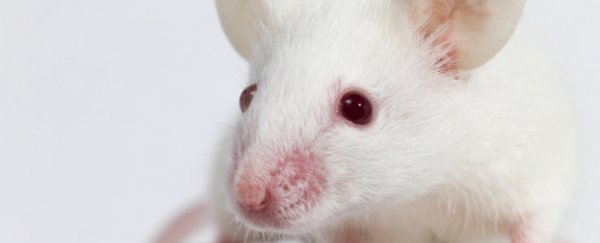Researchers have grown tiny, functioning human intestines inside mice, using a technique that might one day help to treat intestinal diseases using a patient's own cells.
Scientists from Cincinnati Children's Hospital Medical Centre in the US have successfully used stem cells to bioengineer human "organoids" - or precursors to organs - and transplant them inside mice. Fascinatingly, this tissue then went on to grow into miniature, functional human intestines inside the rodents.
This is a huge breakthrough, as a similar technique could eventually be used in humans to regrow healthy intestinal tissue from a patient's own stem cells, which could then be transplanted back into the patient without fear of rejection.
It could also present scientists with a new model for studying intestinal diseases and new drugs, without having to rely on animal testing.
In the study published in Nature Medicine, the researchers explain that the method: "provides a new way to study the many diseases and conditions that can cause intestinal failure, from genetic disorders appearing at birth to conditions that strike later in life, such as cancer and Crohn's disease".
To create the tiny intestines, the scientists first took human pluripotent stem cells, which have the ability to differentiate into any cell type in the body, and then used them to generate the " organoids" of functioning human intestinal tissue.
These organoids were then transplanted into the kidney capsules of mice, which is the layer of tissue surrounding the kidney, where they were fed by the mice's veins and arteries. The mice were genetically modified so that their immune system wouldn't reject the implanted human tissue, giving it time to grow.
The development of the intestine tissue was checked six to eight weeks after transplantation, and the balls of cells had already grown larger than the mouse kidney. Importantly, cells that make up nearly all of the tissue variations found inside a human intestine had grown and were present in the mice, and they could digest and absorb food. Basically, from these balls of cells, functional intestines had physically grown in the mice.
"These studies support the concept that patient-specific cells can be used to grow intestines," Michael Helmrath, who led the study, told Emiko Jozuka from Wired. He added that the research: "advanced the longer-term aim of growing tissues that can replace damaged human intestine."
It could take several years to develop this lab grown tissue further, but this is an important first step.
Source: Wired
